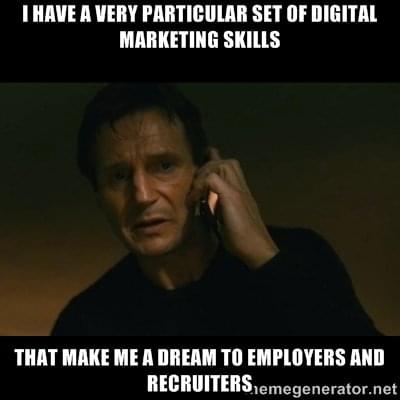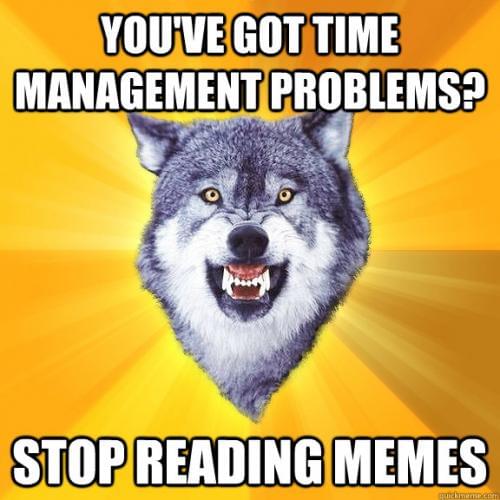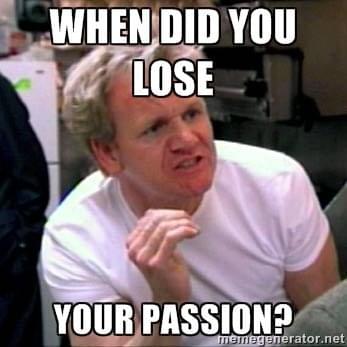5 Sales Skills That a Candidate Can't Fake

Sales is the industry that probably gets the most flack for candidates talking a big game, so any recruiter that’s worth their weight in salt is used to having to weed out the time wasters from the sales superstars during the interview process. Generally, the best way of doing this is to have candidates ‘put their money when their mouths are’ and rhyme off all of the facts and figures about targets reached, profits gained, previous commission structures and various pain points. This is really effective because if a candidate struggles to provide clear proof of what they’ve achieved when you’re interviewing them, you’ll be able to tell very quickly whether or not they’re going to be a good hire for your organisation.
Research by The Brevet Group in late 2015 showed that nearly 13% of all the jobs in the U.S. are full-time sales positions. That’s 1 in every 8 roles. So we’re talking about a lot of sales people here! Today, we’re listing 5 of sales skills that a candidate can’t fake, as well as what types of questions you can ask in interviews to figure out whether they’re the real deal or not.
Skill #1: Writing
 Why it’s an essential skill: 92% of all customer interactions still happen over the phone. So, yes. Cold calling is still alive and well. Understandably, sales managers want their hires to have an amazing telephone manner. But what about all of the emails that go back and forth in order to close a sale?
Why it’s an essential skill: 92% of all customer interactions still happen over the phone. So, yes. Cold calling is still alive and well. Understandably, sales managers want their hires to have an amazing telephone manner. But what about all of the emails that go back and forth in order to close a sale?
It’s so important that all sales hires have decent writing skills in order to hook potential clients with engaging emails. It doesn’t mean that they have to have a Pulitzer Prize, but they do need to know how to draft a well-thought-out, personalised and clear email.
What to ask: The very first thing that you should do in order to find out whether or not a candidate has strong writing skills is to go back to the email that they sent to apply for the job! At the end of the day, they were selling themselves for the position, so carefully check to see how they worded their application email. Does it look like it was well-thought-out, or just thrown together? Are there basic spelling mistakes? Is it clear to see that the candidate spent time researching the company and has highlighted their own achievements and strengths? During the interview, you should also ask the candidate about their touch points when contacting leads – do they mention email at all? If so, ask them to give a brief overview of how they structure their email conversations – do they start with one long email, or gradually build up the conversation over a period of time?
Skill #2: Marketing
 Why it’s an essential skill: Marketing and sales most definitely go hand in hand. Companies that have a disconnect between the two are generally the ones whose budgets somehow get swallowed up with little to no ROI, and it really all boils down to one thing – communication. We’ve already talked about the skills that a digital marketing candidate can’t fake, so are we saying that sales candidates need to tick all of these boxes too? Well, no.
Why it’s an essential skill: Marketing and sales most definitely go hand in hand. Companies that have a disconnect between the two are generally the ones whose budgets somehow get swallowed up with little to no ROI, and it really all boils down to one thing – communication. We’ve already talked about the skills that a digital marketing candidate can’t fake, so are we saying that sales candidates need to tick all of these boxes too? Well, no.
However, it is important for them to have a good grasp of how marketing works, how leads are driven, where enquiries are coming from and the general marketing strategy. Because at the end of the day, sales executives are the ones that will be talking to the people who’ve seen the online ads, read a post on the blog, or followed the company on Twitter, so a good sales hire is someone that’s tuned into the marketing agenda. Not only that, but a great salesperson is someone that’s happy to bring something to the table in terms of suggesting new ideas to the marketing team, because they have access to the type of inside information that can then be transformed into marketing gold.
What to ask: Ask the candidate if they have worked closely with the marketing team in their previous company. Do they understand how marketing works, as well as what is done in the background to drive leads? Have they ever given suggestions to the marketing team in terms of sharing the types of questions that they’re always asked by clients?
Skill #3: Time Management
 Why it’s an essential skill: Time management is a skill that’s essential in pretty much every industry, but when it comes to sales, it’s particularly vital that any hire you make takes time-keeping seriously. You want to make sure that if your new sales executive schedules a call with a potential client for 9am, they aren’t going to be waltzing into the office and switching on their PC at 9:01am!
Why it’s an essential skill: Time management is a skill that’s essential in pretty much every industry, but when it comes to sales, it’s particularly vital that any hire you make takes time-keeping seriously. You want to make sure that if your new sales executive schedules a call with a potential client for 9am, they aren’t going to be waltzing into the office and switching on their PC at 9:01am!
The same goes for off-site meetings – you want to trust that they’ll always be on time and responsible for managing their own diary. The expression ‘time is money’ exists for a reason; when you’re working in sales, you’re constantly asking people to take the time out to speak with you. You want that time to be spent wisely, not wasted away unnecessarily because of poor time-keeping.
What to ask: Observe whether or not the candidate turned up early or late for their interview. Did they have to call and ask for directions because they got lost along the way, or did they show up with ten minutes to spare? During the interview, ask them how they have managed their time in spite of having a heavy workload or dozens of clients – do they have a system to fit everything into their schedule, or do they just go with the flow?
Skill #4: Product Knowledge
 Why it’s an essential skill: A certain amount of spoofing is always going to be something that you’ll have to do when you work in sales, but when it comes down to brass taxes, you need to know the product or service that you’re selling inside out. There are NO exceptions to this.
Why it’s an essential skill: A certain amount of spoofing is always going to be something that you’ll have to do when you work in sales, but when it comes down to brass taxes, you need to know the product or service that you’re selling inside out. There are NO exceptions to this.
A good salesperson could sell ice to an Eskimo, but what if that Eskimo starts asking questions about the quality of the ice, where it came from and about the return policy, all of a sudden the salesperson can’t give them an answer? It means that a potential sale just melted away in front of their eyes (see what we did there?!) Good product knowledge is the fine line between being able to close a sale and losing it. Remember, most potential customers will have done a significant amount of research into the product or service before they even get to the point of having a sales call, so if the sales executive can’t answer their questions (especially the types of ones you could easily find on the company’s website), they really aren’t likely to make waves in the world of sales.
What to ask: Ask them all about the product or service that they sold in their last company. Ask the types of questions that a potential customer would be likely to ask about that product. If they stumble through this section of the interview, you’ll know that it’s very likely that their attention to detail and product knowledge is poor and chances are that they won’t be a good fit for your organisation.
Skill #5: Passion
 Why it’s an essential skill: Passion is something that you genuinely need to have if you’re going to succeed in sales. Without having drive and passion, how is the candidate going to be prompt when it comes to following up with leads, how are they going to be persistent enough to close deals? Will they just give up at the first hurdle? Of course, it’s lovely to get a nice commission at the end of every month, but you want to be sure that any salesperson you hire will work as hard as they possibly can to deliver results, and even if they don’t make target, they are going to keep going, rather than throw in the towel!
Why it’s an essential skill: Passion is something that you genuinely need to have if you’re going to succeed in sales. Without having drive and passion, how is the candidate going to be prompt when it comes to following up with leads, how are they going to be persistent enough to close deals? Will they just give up at the first hurdle? Of course, it’s lovely to get a nice commission at the end of every month, but you want to be sure that any salesperson you hire will work as hard as they possibly can to deliver results, and even if they don’t make target, they are going to keep going, rather than throw in the towel!
What to ask: Simple. Ask them why they like working in sales! It’s actually a tough question to answer; why does anyone like working in the industry they’re in? Nevertheless, there should definitely be a couple of reasons as to why a candidate enjoys sales – after all, it can be a tough gig, so you’d want to enjoy it to stick with it! Maybe they love the rush they get when they close a deal they’ve been working on for months. Maybe they love meeting new people and connecting with them. Maybe they love telling stories. Whatever their driving force is, they need to be able to verbalise the reasons why they got into sales in the first place. If you notice that the sparkle is still there when they’re talking, you’re onto a winner!
Learn how to conduct the bet interviews to find the prefect candidate for your job using the tips and guidelines on the SocialTalent platform. Arrange a live demo with the SocialTalent team today!
